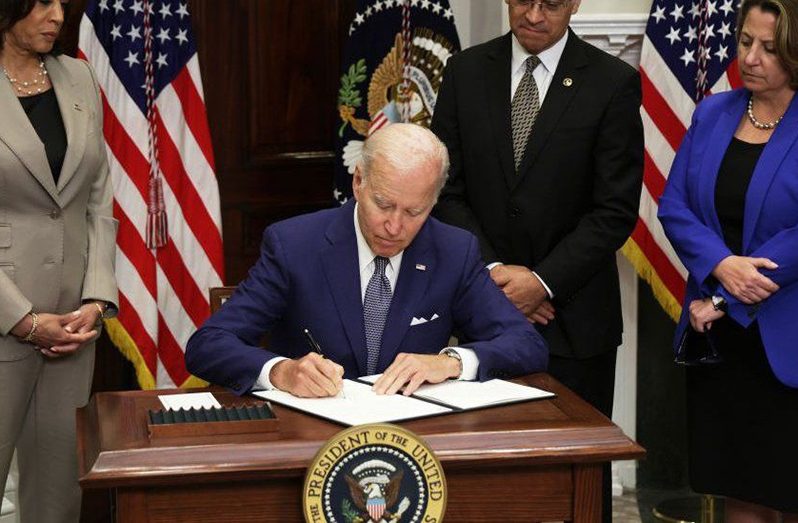(BBC) – President Joe Biden has said a federal law would be the “fastest way” to restore abortion rights, as he signed an order to safeguard abortion access.
He called a recent Supreme Court abortion ruling, which ended the nation-wide right to the procedure, “an exercise in raw political power”.
It paved the way for individual US states to decide if and how to allow abortions.
Mr. Biden has faced pressure to respond to the ruling with bolder action.
The presidential order, signed on Friday, is expected to have a limited impact, to mitigate some of the restrictions but not fully restore abortion rights.
Mr. Biden has maintained that his ability to institute abortion rights is limited without action from the US Congress.
“The fastest route to restore Roe is to pass a national law codifying Roe,” Biden said, referring to the landmark 1973 ruling that guaranteed the constitutional right to an abortion.
In his remarks, he emphasised this was an issue for the coming mid-term elections, and urged people to vote in Democratic majorities as the fastest way to bring Roe V Wade back, and saying that US voters had a choice between “the mainstream or the extreme”.
He also pointed to a recent news report that a 10-year-old girl in Ohio was forced to travel to a neighbouring state to have an abortion after she was sexually abused.
“Imagine being a little girl; just imagine being a little girl, 10 years old. Does anyone believe that?” he said.
Mr. Biden’s new executive order beefs up protection against potential penalties that women seeking abortion may face if they travel across state lines for the procedure, protects access to contraception, and takes steps to protect patient privacy.
It includes measures to safeguard access to abortion medication.
The order directs Health and Human Services Secretary Xavier Becerra to submit a report within 30 days on those efforts.
Mr. Biden is also directing the attorney-general and White House counsel to convene private volunteer attorneys and public interest organisations to encourage legal representation for those seeking or offering reproductive health services.
Since the Supreme Court abortion ruling nearly two weeks ago, at least nine states have instituted a near-total ban on the procedure, with the only exception being danger to the life of the mother.
Other states are now scrambling to protect abortion access amid legal challenges, while abortion clinics are struggling to navigate patchworks of new laws.



.jpg)








